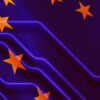Minister, Ambassador, ladies and gentlemen, amigos españoles
Many thanks for inviting me to speak to you today. It is a great honour and privilege.
Let me begin with Ukraine, and Russia’s illegal aggression.
In recent years, there have been many signs of Putin’s ruthless disregard for human life and the international order.
Still, it was hard to contemplate the scale of destruction and suffering that we are seeing today.
A brutal war waged by Russia on Europe’s largest country that shows no signs of easing.
Ukraine is essential to the future of the EU. And Ukraine’s future belongs in the EU.
This is not a destiny imposed.
It is the free and sovereign will of the Ukrainian people.
Russia’s war has created enormous human suffering and transformed economic and geopolitical conditions. Given the Kremlin’s latest escalation of its aggression, the EU is now preparing a further set of sanctions.
This war is causing havoc in energy markets and driving inflation to record highs. Its shockwaves have triggered economic and social difficulties around the globe.
It began when EU countries were successfully recovering from the COVID-19 pandemic, in great part thanks to the speed, coordination and ambition of our joint policies.
The origin and nature of this latest crisis is different.
It comes from a supply shock rather than restricted demand.
Our policy response must be tailored to that.
However, we must show the same degree of determination.
The next few months will be difficult, even more so now that Russia has decided to close Nord Stream 1 indefinitely.
It is using its energy supplies as a weapon of blackmail and manipulation.
Europe is paying a high price for its reliance on Russian fossil fuels and its lack of domestic energy sources. Sometimes these sources do not exist: we do not have them.
Sometimes they are not exploited.
High inflation is eroding purchasing power and causing a great deal of pain for households and businesses. They need our support now – today.
This calls for measures that help where it is needed: tailored, targeted and effective for these specific circumstances.
The Commission’s emergency proposals for energy markets go in that direction. In addition to energy-saving and demand-management measures, they include a cap on the revenues from technologies that produce electricity at lower costs, and a temporary solidarity contribution from the fossil fuel sector.
Put together, they will help to lower electricity prices for consumers and generate revenues for governments to assist vulnerable households. They are a first step in the wider review of the functioning of energy markets that is now being prepared.
Spain has played an important role by drawing attention to the importance of market design from an early start.
However, addressing the effects of this crisis will require a much broader policy response.
With the Recovery and Resilience Facility, Member States committed themselves to carrying out ambitious reforms and investments.
In such an altered situation, they are more important than ever.
They include billions of euros for investments in energy efficiency and renewables, together with structural reforms to unlock barriers to growth and improve public finances.
These are also the correct responses to Russia’s aggression.
However, we can do more – and must do more – to rid ourselves of our reliance on Russian fossil fuels.
Last May, the Commission proposed to review the RRF Regulation and provide new funding for Member States to introduce additional energy measures into their recovery plans.
The goal is to bring about a rapid improvement in our energy security. Here, I rely on Spain’s understanding and solidarity to help reach a compromise in the Council as soon as possible.
All EU countries are going through an intensely demanding period, even if some are more impacted than others.
It is important that we steer through this difficult time in a spirit of solidarity and close cooperation.
Another important challenge relates to public finances.
With the normalisation of monetary policies, we see tighter financing conditions and rising borrowing costs, which reduce governments’ room for policy manoeuvre.
Pressures on public budgets also come from the cost of the support measures that are helping families and business to weather the spike in energy prices.
This is why they should focus on those who need them most, accompanied by appropriate revenue measures.
In short: we need cautious spending policies so that we avoid fuelling inflation – which would lead to higher interest rates and reduce the available fiscal space even more.
Social partners also have an important role to play in distributing the cost of this crisis fairly.
Ladies and gentlemen
While we tackle this emergency, we should also create conditions for the welfare and prosperity of future generations.
If the green and digital transitions are to succeed, they require:
- an enabling business environment
- a workforce with the right skills, and
- access to the raw materials that our industries need.
In the words of President von der Leyen at her State of the Union address: “The future of our children needs both that we invest in sustainability and that we invest sustainably.”
To achieve both goals, the Commission will soon present orientations on the future of our economic governance. Here, we see three fundamental priorities:
- We need to make sure that public debt declines, especially where it is high, and especially during good economic times.
- We need to pay due attention to the composition and quality of public finances, given the high investment needs for the twin transitions and our collective security.
- We need a simpler system and greater national ownership to ensure compliance.
In other words, resources are scarce.
So we must make sure to keep reforming our public administrations and economies to improve the efficiency and effectiveness of our policies, as well as respond to existing challenges and those lying ahead.
In good times, we must also replenish fiscal buffers to be able to deal with future crises.
Looking beyond Europe, another lesson from Russia’s aggression is that joining forces with friends and partners around the globe is more important than ever.
We need them to stand with us at times of rising international tension. So it cannot be a question of continuing to do ‘business as usual’.
We should use our trade agenda to pursue our geopolitical, economic and sustainability objectives.
In addition, we are strengthening our autonomous tools to defend ourselves from unfair trade practices, boost our security and effectively deal with those who try to break the rules.
That means updating our links to reliable countries and key growth regions – which will help us to secure supplies of key raw materials as well. This way, the EU can avoid repeating the same dependence as with oil and gas.
In addition, we can find new markets for the import and export of green goods and services.
Latin America in particular presents an excellent opportunity for the EU.
It is a region where Spain’s longstanding positive relationship will be of great value, especially during the Spanish EU Presidency in the second half of 2023. This is when we will host leaders of the EU, Latin America and the Caribbean at the EU-CELAC Summit.
I know I can rely on Spain’s unwavering support for the Commission’s trade agenda.
The Commission will soon present the agreement with New Zealand for ratification and is finalising agreements with Chile and Mexico.
And we will press ahead in the negotiations with key partners like Australia and India.
Minister, Ambassador: with a war on our borders, this is a time for the EU to work and act together like never before.
The threats and challenges that we face are too daunting for one Member State to deal with alone.
This applies to defence too, where almost all European countries are increasing their spending since Russia began its aggression. On its own, this aggression will redefine the European defence landscape for years to come.
Since I come from Latvia, I would like to mention that Spain has reinforced the contingent deployed in NATO’s Battle Group in Latvia and air defence system. This is a good example of European unity and cohesion.
You are not only contributing to peace in Latvia and the region, You are ensuring peace in Spain too – because we all live in a globalised world.
I would like to thank you for this direct support. It means a great deal to keep our friends and families safe in Latvia.
Ladies and gentlemen
In nine months, Spain will begin its EU Presidency.
Whatever we may have to tackle from July 1st, I have full confidence in Spain’s deep European spirit, its resolve to unite us and its commitment to EU integration.
Thank you. Gracias.
(*) This article was originally published on 27 September 2022 in the European Commission website.
See also: Conversation on “Russia’s war in Ukraine and the future of European integration”



